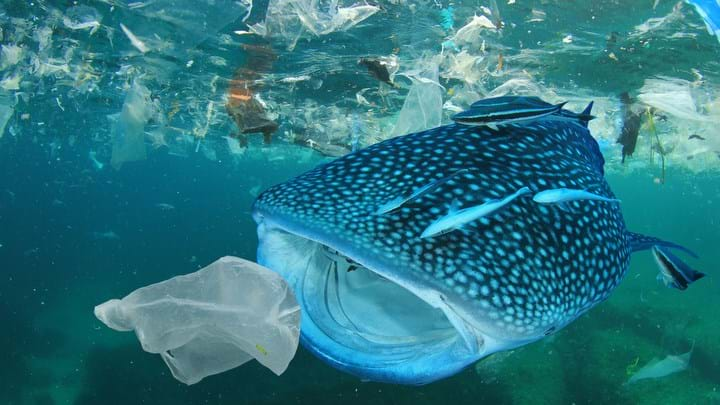“Abject failure” as plastic treaty collapses

EFFORTS to agree a global treaty to end plastic pollution have once again collapsed – this time in “abject failure” – as oil-producing nations and those demanding a cap on plastics production resisted one another’s demands.
After three years of negotiations, delegates from more than 170 countries gathered for a sixth meeting, this time in Switzerland, to discuss how a legally-binding treaty might improve plastic design, reduce the use of toxic chemicals, fund recycling schemes and put a cap on plastic production.
But similar to the previous meeting – in South Korea in November billed as the final chance to agree a treaty – the negotiations again ran late and ended in deadlock on 15 August.
“The collapse of the Geneva negotiations on a global plastics treaty is a devastating missed opportunity to tackle this crisis at its source,” said Nina Wootton, a marine researcher from the University of Adelaide who works on marine plastic pollution.
The majority of countries including the EU, UK and Australia are said to support an ambitious treaty with caps on production and bans on harmful chemicals. Yet Saudi Arabia and the US are part of an oil-producing minority block that are resisting a ban and instead pushing for countries to focus on using recycling to solve the environmental crisis. In the short-term, recycling could not prevent large volumes of plastic waste from escaping into and harming the environment as only around 10% of hundreds of millions of tonnes of plastic produced each year is recycled and it will take decades to scale up recycling schemes and technology.
Wooton said: “The science is clear: recycling alone will not solve this problem. Plastic production is projected to triple by 2060.”
Lack of compromise welcomed
Sam Harrison, an environmental modeller at the UK Centre for Ecology and Hydrology, said: “We already know that plastics and chemicals added to, or contained within, plastics cause harm to animals, humans and plants, and any delay only serves to worsen these impacts.”
There is some optimism that countries held firm and refused to agree a compromise deal.
Steve Fletcher, director of the Revolution Plastics Institute at the University of Portsmouth: “Whilst there has been no consensus, it is important to recognise that this is because ambitious countries refused to accept a watered-down treaty. The draft treaty on the table omitted key actions to prevent plastic pollution, including measures to control the production of plastic, regulate the use of chemicals in plastics, and establish global rules on plastic products.”
Harrison said: “Though we don’t have the global plastics treaty that we had hoped for, it is reassuring that member states unanimously expressed support for continuing negotiations at a later date.”
Tyranny of consensus
Yet others have said the repeated failure shows the treaty process must change and that willing countries should forget multilateral decision-making and go it alone.
David Azoulay, director at the Center for International Environmental Law, described the negotiations as an “abject failure” and accused some countries of coming along to deliberately block negotiations.
“We need a restart, not a repeat performance. Countries that want a treaty must now leave this process and form a treaty of the willing. And that process must include options for voting that deny the tyranny of consensus we have watched play out here.”
Those chairing the negotiations have relied on finding consensus among all countries to agree a treaty. Some are arguing that the chair should fall back on voting to break the deadlock, though this would be politically explosive and have serious implications for multilateralism.
Reacting to the failure to reach an agreement, Fletcher and his colleague Antaya March, wrote that the world cannot afford another round lost to procedural deadlock: “Higher-ambition nations such as those in the EU, Panama, Colombia, Australia, the UK and small island states should coordinate more closely and be willing to use procedural tools such as voting when needed, even if politically uncomfortable.”
EU trade group Plastics Europe said it was disappointed that a legally binding treaty on plastics pollution could not be agreed. It urged UN member states to resume multilateral talks.
Virginia Janssens, managing director at Plastics Europe, said: “We believe the agreement needs measures promoting sustainable production and consumption, effective waste management for the 2.7 billion people who currently live without them, and to ensure reporting frameworks that enable a just transition to a circular economy. We want end-of-life plastic to become a circular feedstock and commodity with real value rather than waste that is littered, landfilled or incinerated.”
Recent Editions
Catch up on the latest news, views and jobs from The Chemical Engineer. Below are the four latest issues. View a wider selection of the archive from within the Magazine section of this site.




